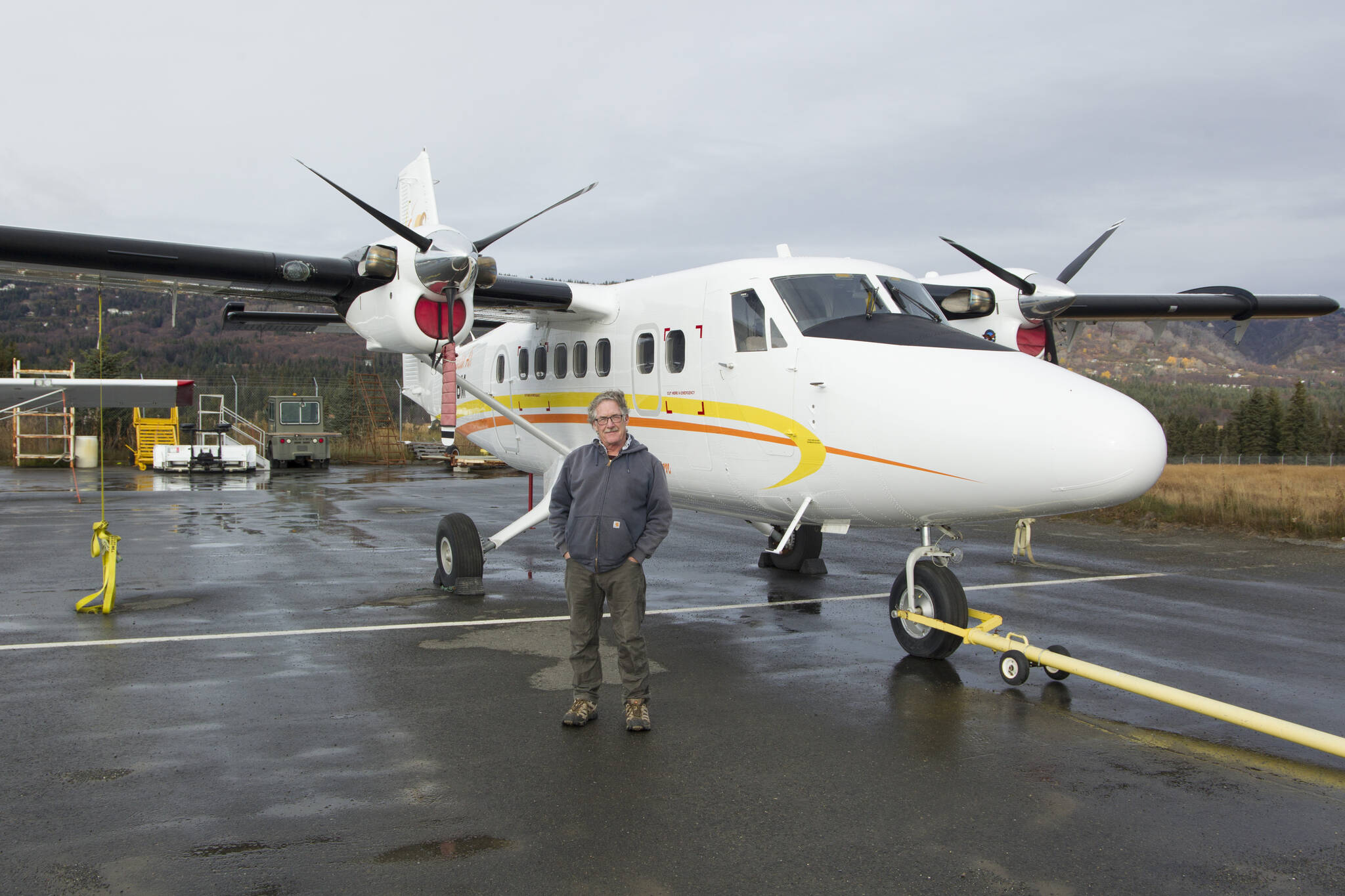The Homer City Council on Monday passed an ordinance which will enact a flat tax on registered aircrafts to match the Kenai Peninsula Borough’s property taxes beginning next year. Currently the City of Homer taxes aircrafts ad valorem, or by its estimated value, while the borough taxes based on the aircraft’s gross weight with an internal load.
Ordinance 21-62 (S), sponsored by Mayor Ken Castner, was introduced after Gary Porter, owner of Bald Mountain Air Service, approached Castner after receiving a more than $30,000 bill from the Kenai Peninsula Borough for the City of Homer. The tax was administered for a Twin Otter airplane, which the city valued at $6 million. With a flat tax rate in Homer, the airplane would have been assessed for a considerable amount less.
“The Kenai Peninsula Borough adopted a flat tax rate about 15 years ago, so an airplane this size would be $1,000 with a flat tax,” Porter said in an interview with Homer News. “But the City of Homer for some reason didn’t, so an airplane this size, instead of being $1,000, is $35,000 in taxes.”
With the new ordinance passed, aircrafts that have been issued an N number by the Federal Aviation Administration are now subject to the flat tax rate based on weight instead of value.
For fixed wing aircrafts, class 1 aircrafts weighing less than 2,000 pounds will be taxed $50 annually; class 2 aircrafts weighing 2,000 to less than 4,000 pounds will be taxed $100; class 3 aircrafts weighing 4,000 to less than 6,000 pounds will be taxed $300; class 4 aircrafts weighing 6,000 to less than 12,500 pounds will be taxed $600; and class 5 aircrafts 12,500 or more in weight will be taxed $1,000 annually.
For rotorcraft or rotary wing aircrafts, class 1 aircrafts weighing less than 1,500 pounds will be taxed $100 annually; class 2 aircrafts weighing 1,500 to less than 3,500 pounds will be taxed $600; and class 3 aircrafts weighing 3,500 or more will be taxed $1,000 annually.
Castner shared he wasn’t sure why the city didn’t change their policies along with the borough, but it was time to change it now to help grow the aviation industry in Homer.
“We should have a real thriving aviation maintenance base here, but because of that tax, nobody wants to bring their airplanes here,” Porter said.
Because of the city’s ad valorem tax structure, many aircraft owners take their planes to Anchorage and the Mat-Su Valley during the winter for maintenance, Porter explained.
“The flat tax structure will encourage more expensive aircrafts to stay in Homer for annual maintenance, providing year-round steady employment for mechanics and other support services,” Porter said.
During the city council meeting Monday, several community members who own airplanes corroborated Porter’s statement by sharing they also take their planes to Anchorage and Wasilla during the winter and would like to see these services brought to Homer.
“I take my aircraft to Anchorage for maintenance,” Stephanie Greer said. “I think this is a really good opportunity to support the aviation trades.”
Heidi Browning, from Maritime Helicopters, said bringing the tax policy in line with the borough would encourage more owners to remain in Homer.
“The current tax structure here in Homer, the ad valorem tax rate, discourages basing your more valuable aircraft in the city limits year round,” Browning said. “The tax burden on aircrafts is significantly higher than most other boroughs around the state. … I think this is a method that would bring Homer tax policy in line with the borough, make it a more appealing base location for operators and bring that annual maintenance back into Homer.”
The City of Homer annually receives between $20,000 – $50,000 in aircraft taxes, but the council members are hopeful the flat tax will encourage more aircraft owners to bring their planes to Homer, resulting in more year-round job opportunities and economic growth that will make up the lost revenue.
“I think what we may lose in what we’ve made in taxes, we’re going to more than gain in people coming back in and living here and buying their goods and services here,” Council member Shelly Erickson said. “I think it’s going to be a win-win for all of us.”
Council member Rachel Lord said she was confident in supporting the ordinance once understanding how the current tax allocates funds.
“Thanks to finance for working with the borough and the borough tax department to figure out exactly what current tax revenues come in from the current tax structure we have,” Council member Rachel Lord said. “… I appreciate that information, and especially with that knowledge, I can support the ordinance.”
The flat tax rate will begin in January 2022, and is not retroactive for 2021.
For more information about the ordinance, visit www.cityofhomer-ak.gov/citycouncil/city-council-regular-meeting-237.


